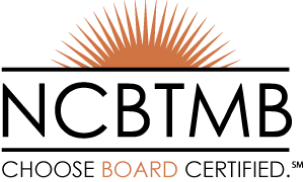Acceptable & Unacceptable Course Content
Acceptable Course Content
Massage Modalities, Techniques, and Manual Forces
- Applications of massage and bodywork therapy for specific needs, conditions, or client populations
- The use of massage therapy tools and their specific needs
- Working with the muscles within the oral cavity for specific treatments
- Use of external agents such as water, heat, cold, or topicals
- Energy work that includes “professional therapeutic hands-on applications”
Applied Sciences (Anatomy, Physiology, Kinesiology, Pathology/Injury and Pharmacology)
- Anatomy, physiology, and kinesiology beyond core massage therapy school curriculum
- Pathology beyond core massage therapy school curriculum
- Body-centered or somatic psychology
- Psychophysiology
- Theory or practice of ergonomic science as applied to therapist or client
- Advanced science courses that contain content that goes beyond the massage therapist’s scope of practice (as defined by state and/or local legislation), and that is instructive in understanding systems of the body more in-depth
- Hygiene, methods of infectious disease control, organization, and management of the treatment environment
- Research literacy
- Self-care*:
- courses concentrating on nutrition and/ or diet, but only as it enhances the learner’s knowledge about the practice of massage therapy
- Perform yoga/yoga teacher training programs (acceptable for therapist’s self-care only)
- Active strengthening/physical training (acceptable for therapist’s self-care only)
Professional Communications
- Strategies for communicating and collaborating with care providers
- Interpersonal skills, which may include communication skills, boundary functions, phenomena of transference, counter-transference, and projection
Laws and Business Practices
- State laws
- Marketing for massage and bodywork therapy practices
Professionalism and Ethics
- Standards of practice and professional ethics
Assessment
- Client assessment protocols
- Client record keeping
Please note: *NCBTMB only accepts four (4) CEs per renewal period in Self-Care. Self-Care is NOT a requirement. All self-care courses MUST include a statement that NCBTMB only accepts four (4) CEs per renewal period when promoting the courses.
Unacceptable Course Content
- Core curriculum content including basic anatomy, physiology, kinesiology, pathology, and Swedish massage applications
- Diagnoses (allopathic-based) of clinical conditions
- Implementation of allopathic medical/surgical procedures
- Physically invasive modalities, e.g., ear candles, intra-anal, intra-vaginal modalities, etc.
- Incorporation of chiropractic/osteopathic, e.g., ballistic, thrust oriented or other services and procedures which require additional licensure or certification, i.e., Yoga or Pilates Instructor Certification, Physical Therapy, Personal Training, Weight Training
- Prescription of herbs, nutritional supplements, and /or pharmaceuticals
- Performing hypnosis
- Performing an aesthetician facial or exfoliation of cells from the body
- Performing electrical stimulation, using electrical devices on clients or ultrasound of any kind
- Light therapy in any form
- Psychological counseling
- Psychic, clairvoyance, telepathic, astrology, religious practices
- Dry needling and acupuncture
- Breaking or removing tissue from the body
- Courses based on use of specific products
- Energy work that does not include “professional therapeutic hands-on applications”
- Techniques relying on limited hands-on contact and/or the use of guided meditations, clearing of energy blockages, spiritual guidance or other energy healing approaches such as (but not limited to): Holy Fire Reiki, Integrated Energy Therapy, Access Bars and Healing Touch.
- Aura techniques
- Crystal healing
- Qi Gong or Tai Chi
- Fire cupping or any procedure that works with fire
- Breast massage classes are accepted as part of medical procedures, as prescribed by a physician, when they meet state licensing board requirements for practicing breast massage, or when learning about oncology (specifically, breast cancer procedures).
- Moxibustion
- Tongue Reading
- Erroneous, misleading titles of modalities; a description of the course must be added to the title if the modality/topic cannot be easily deciphered by the title.
- CPR/First Aid
Exceptions: Courses that will be allowed only when the course is designed/outlined and titled as strictly for the therapist’s personal self-care and not to be taught to others or performed on clients, such as:
- Performing active strengthening/physical training to others (acceptable for the therapist’s self-care only).
- Perform yoga/yoga teacher training programs (acceptable for therapist’s self-care only).
Please Note: Basic/fundamental course content represented in the initial massage therapist training, does not qualify for CEs as it is not continued education. Continuing education must be of an advanced nature, with more specific approaches.
NCBTMB reserves the right to reject any course content that does not adhere to federal laws and regulation, risks participant or instructor safety, and/or is not sufficiently backed up by research.
As with all continuing education, it is understood that the massage therapist is responsible for verifying that information provided in courses is within the therapist’s state and/or local scope of practice as defined by law. In addition, course participants should be advised that additional training and education is required to be truly proficient in any topic. Once courses are completed, Approved Providers provide Certificates of Achievement or Certificates of Completion. After taking Approved Provider’s course, a participant is not certified in a topic. Approved Providers are encouraged to include this information in course materials for participants.
Please be sure to review the NCBTMB website as content is subject to change.
For additional information about course categories or advanced science courses, download the Continuing Education Course Categories and Advanced Science Course Forms located on the NCBTMB website.
